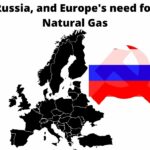Crude oil coming from hydraulic fracturing dependent oil operations in the Bakken Shale region are more dangerous, more explosive, than crude oil from other sources. Crude oil isn’t normally seen as a high explosion risk hazmat material. The train derailment in Quebec in July that resulted in a huge explosion and fire that killed a bunch of people showed that Bakken crude oil is dangerous in this way.
According to a report on Bloomberg News, a U.S. Federal Railroad Administration is looking into whether chemicals used in hydraulic fracturing are corroding rail tank cars and increasing risks. Additionally, three pipeline companies including Enbridge are reporting that Bakken crude oil with too much hydrogen sulfide is reaching refineries, and putting workers at risk because it is more flammable and toxic than regular crude oil.
North Dakota’s oil boom has mushroomed to more than 790,000 barrels a day this year up from from about 150,000 barrels in 2008. That production is overwhelmingly being transported by train (75%) rather than pipeline.
At the Canadian train wreck, regulators are testing the crude oil and wondering why the derailment led to such an intense inferno, which regulators have called “abnormal.”
The Bakken oil boom is overwhelmingly reliant on hydraulic fracturing. The technique uses toxic chemicals like hydrochloric acid to fracture rocks underground and release the oil.
Clearly some of those toxic chemicals are staying with the crude oil. Or, from the Bloomberg report: “If the hydrochloric acid is carried with the oil into rail cars, corrosion can be an issue,” Andy Lipow, president of Houston-based Lipow Oil Associates LLC, said in an e-mail.
In June, Enbridge won an emergency order to reject oil with high
hydrogen-sulfide levels from its system after telling the Federal Energy
Regulatory Commission that it found dangerous levels of the compound at
a rail terminal in Berthold, North Dakota. Enbridge also won FERC permission to refuse shipment of any delivery of oil with hydrogen sulfide that exceeded 5 parts per million.
- Highway design could decrease death and injury risk, if “we” chose smarter designs - March 28, 2015
- GM really did trademark “range anxiety”, only later to abandon that mark - March 25, 2015
- US Government releases new regulations on hydraulic fracturing, that some call “toothless” - March 20, 2015
- Tesla Motors magic pill to solve range anxiety doesn’t quite instill range confidence - March 19, 2015
- Update on Galena IL oil train – 21 cars involved, which were the supposedly safer CP1232 design - March 7, 2015
- Another oil bomb train – why are they shipping crude oil by train? – Symptoms of fossil fuel addiction - March 6, 2015
- Chevron relinquishes fracking in Romania, as part of broader pull-out from Eastern European fracking operations - February 22, 2015
- Answer anti- electric car articles with truth and pride – truth outshines all distortions - February 19, 2015
- Apple taking big risk on developing a car? Please, Apple, don’t go there! - February 16, 2015
- Toyota, Nissan, Honda working on Japanese fuel cell infrastructure for Japanese government - February 12, 2015









